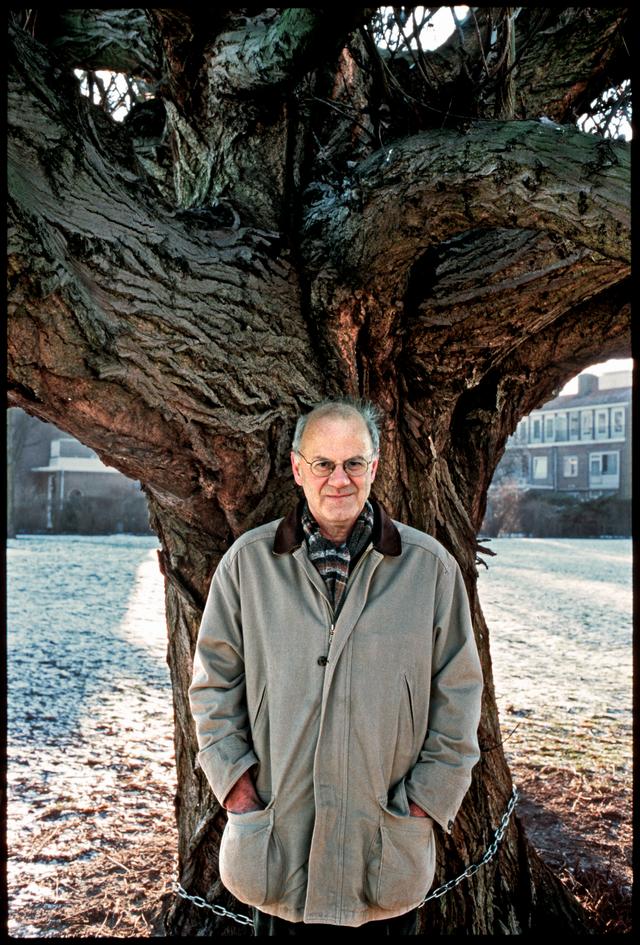And I faced love
Anything is possible in the world of Tellegen’s poems. He experiments with human identity and the poem is the ideal place for reflecting on the subject. This could easily be heavy-handed, except that his poetry stands out for its light-hearted, lucid tone and its unphilosophical, indeed extremely evocative narrative style.

Tellegen often surprises the reader by taking things literally, and thus creating a wealth of meanings. Take for instance this very immediate and intriguing opening:
‘A man falls prey to doubt from time to time, decides to split in half, and moves in two directions.’
After having been split in two for a while, he goes looking for himself again, carefully sneaking up on himself from two different angles. The poem renders a state of mind in the form of a story.
Tellegen is a master at projecting emotional states such as fear, helplessness, alienation, surrender, delight in narrative poetry. Strikingly often, he is concerned with disappearance, grief, death. He lets an apple rot slowly, he kills a mosquito, conscious of guilt, he discovers a bull in the china shop of his soul, he watches himself climb a wall on the edge of his thoughts.
Each of his poems - and there are many - is a stunningly sharp and telling parable about human feelings and behaviour. They are never realistic, always grotesque, exaggerated, surreal, absurd (here Tellegen owes a debt to Daniil Charms), and always busy with language. His verse inevitably draws the reader into the poem: ‘Life is a side branch of love’, ‘A man discovered that love does not exist’, ‘Shall I give you a lethal kiss?’
Tellegen’s poetic universe is a densely populated one and literally covers every aspect of our inner and outer worlds. His poetry is simply unparallelled.
“Tellegen’s poems are parables for grown-up children. Their world is stripped-down, urgent, playful, quirky, familiar as children’s games yet strangely disorienting. They induce a mini- millennial fever, the disquieting excitement of being about to pass through the needle’s eye.”
“Tellegen’s poetry is full of cheerful human misunderstanding. With their fairytale speed, his poems encompass entire novels.”
